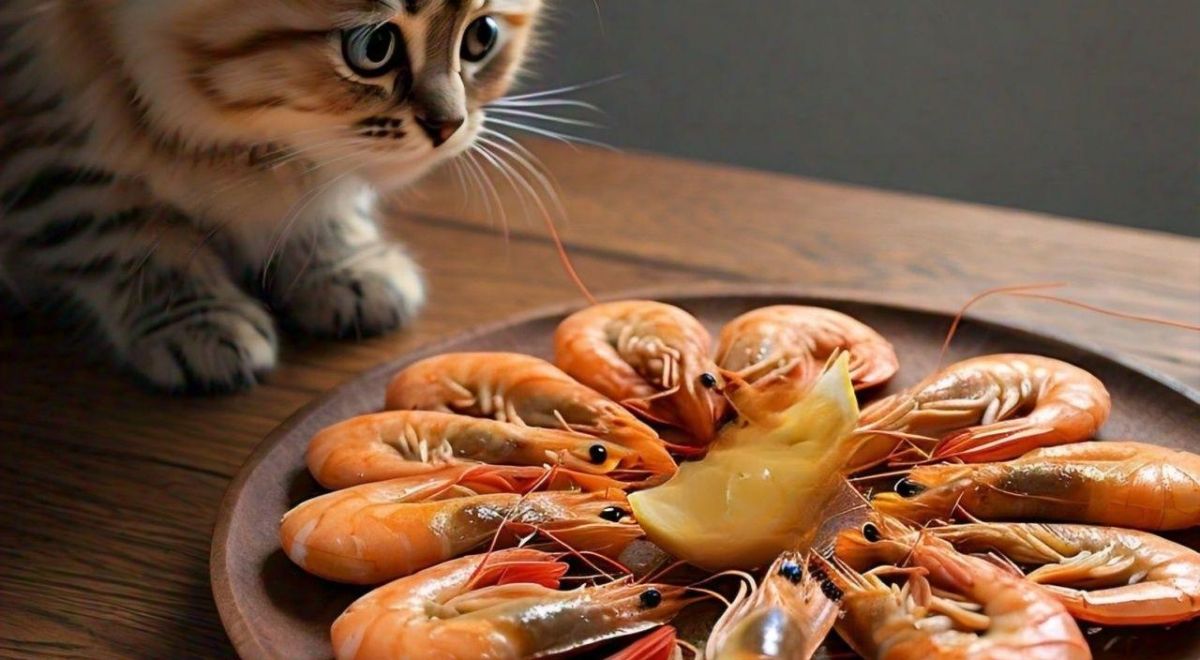Can Cats Have Shrimp? A Comprehensive Guide for Pet Lovers
Introduction
As a cat owner, you always want the best for your feline friend, including their diet. While cats are primarily carnivores, they can sometimes enjoy a variety of treats. One question that often arises is: can cats have shrimp? Shrimp is a popular seafood among humans, but is it safe for our cats to consume? In this blog post, we will explore whether cats can eat shrimp, the potential benefits and risks, and how to safely incorporate shrimp into your cat’s diet.
Can Cats Have Shrimp?
Yes, cats can have shrimp, but there are several factors to consider. Shrimp can be a healthy treat for cats when prepared and served correctly. It is rich in protein and other essential nutrients that can benefit your cat’s health. However, it’s crucial to ensure that the shrimp is fresh, properly cooked, and free from any additives or seasonings that could be harmful to your cat.
Nutritional Benefits of Shrimp for Cats
Shrimp is packed with high-quality protein, which is vital for maintaining your cat’s muscles, skin, and coat. It also contains essential nutrients like omega-3 fatty acids, vitamin B12, and selenium. These nutrients can help improve your cat’s immune system, support heart health, and enhance cognitive function. Additionally, the low calorie and fat content make shrimp an excellent treat for cats who need to maintain a healthy weight.
Risks of Feeding Shrimp to Cats
While shrimp can be beneficial, there are also potential risks to be aware of. Firstly, shrimp can sometimes contain harmful bacteria or parasites, especially if it is raw or undercooked. This can lead to gastrointestinal issues such as vomiting or diarrhoea. Secondly, shrimp shells and tails can pose a choking hazard or cause digestive blockages. Lastly, shrimp often contains high levels of sodium, which can be harmful to cats in large quantities.
Can Cats Have Raw Shrimp?
Feeding raw shrimp to cats is not recommended. Raw shrimp can harbour bacteria such as E. coli and Salmonella, which can cause severe food poisoning in cats. Cooking the shrimp thoroughly eliminates these bacteria, making it safer for your pet to consume. Always ensure that any shrimp you feed your cat is fully cooked and free of any seasoning or additives.
Can Cats Have Cooked Shrimp?
Yes, cats can have cooked shrimp, and it is the safest way to serve this seafood to your feline friend. When preparing shrimp for your cat, make sure it is boiled or steamed without any seasoning, oils, or butter. These ingredients can be harmful to cats and may lead to digestive problems or other health issues. Cooked shrimp should also be cooled to room temperature before being served to your cat.
Read More: Can Cats Eat Cinnamon?
Can Cats Have Shrimp Tails?
It is best to avoid giving your cat shrimp tails. Shrimp tails can be tough and difficult for cats to chew, posing a choking hazard. Additionally, they can cause blockages in the digestive tract if swallowed. Always remove the shells and tails from shrimp before offering it to your cat to ensure their safety.

How to Safely Introduce Shrimp to Your Cat’s Diet
If you decide to introduce shrimp to your cat’s diet, start with small amounts to see how they react. Monitor your cat closely for any signs of allergic reactions or digestive issues. If your cat enjoys shrimp and tolerates it well, you can offer it as an occasional treat. Remember to keep portion sizes small and infrequent, as too much shrimp can lead to nutritional imbalances.
Alternatives to Shrimp for Cats
If your cat doesn’t like shrimp or if you prefer to avoid it, there are other seafood options that can be safe and nutritious. Cooked fish such as salmon or tuna can be excellent alternatives, provided they are free of bones and seasonings. You can also consider commercial cat treats made from seafood, which are formulated to be safe and balanced for feline consumption.
Conclusion
In conclusion, cats can have shrimp, but it must be prepared and served correctly to ensure their safety. Cooked, unseasoned shrimp can be a nutritious and enjoyable treat for your feline friend when given in moderation. Always be mindful of the potential risks and monitor your cat for any adverse reactions. By following these guidelines, you can safely incorporate shrimp into your cat’s diet and provide them with a tasty and healthy treat. Stay connected with bolgwave for more useful pieces of information.
FAQs
Can cats have raw shrimp?
No, it is not recommended to feed cats raw shrimp due to the risk of bacterial contamination, which can cause food poisoning.
Can cats have cooked shrimp?
Yes, cats can have cooked shrimp. It should be boiled or steamed without any seasoning or additives and cooled to room temperature before serving.
Can cats have shrimp tails?
No, cats should not have shrimp tails as they pose a choking hazard and can cause digestive blockages. Always remove the shells and tails before feeding the shrimp to your cat.
How often can I give shrimp to my cat?
Shrimp should be given as an occasional treat and not as a regular part of your cat’s diet. Small portions once a week are generally safe for most cats.
What are some signs that my cat might be allergic to shrimp?
Signs of an allergic reaction in cats include vomiting, diarrhoea, itching, swelling, and difficulty breathing. If you notice any of these symptoms, stop feeding shrimp to your cat and consult your veterinarian.



